Lending their voices to echo the same demand: End discrimination against Afro-descendants
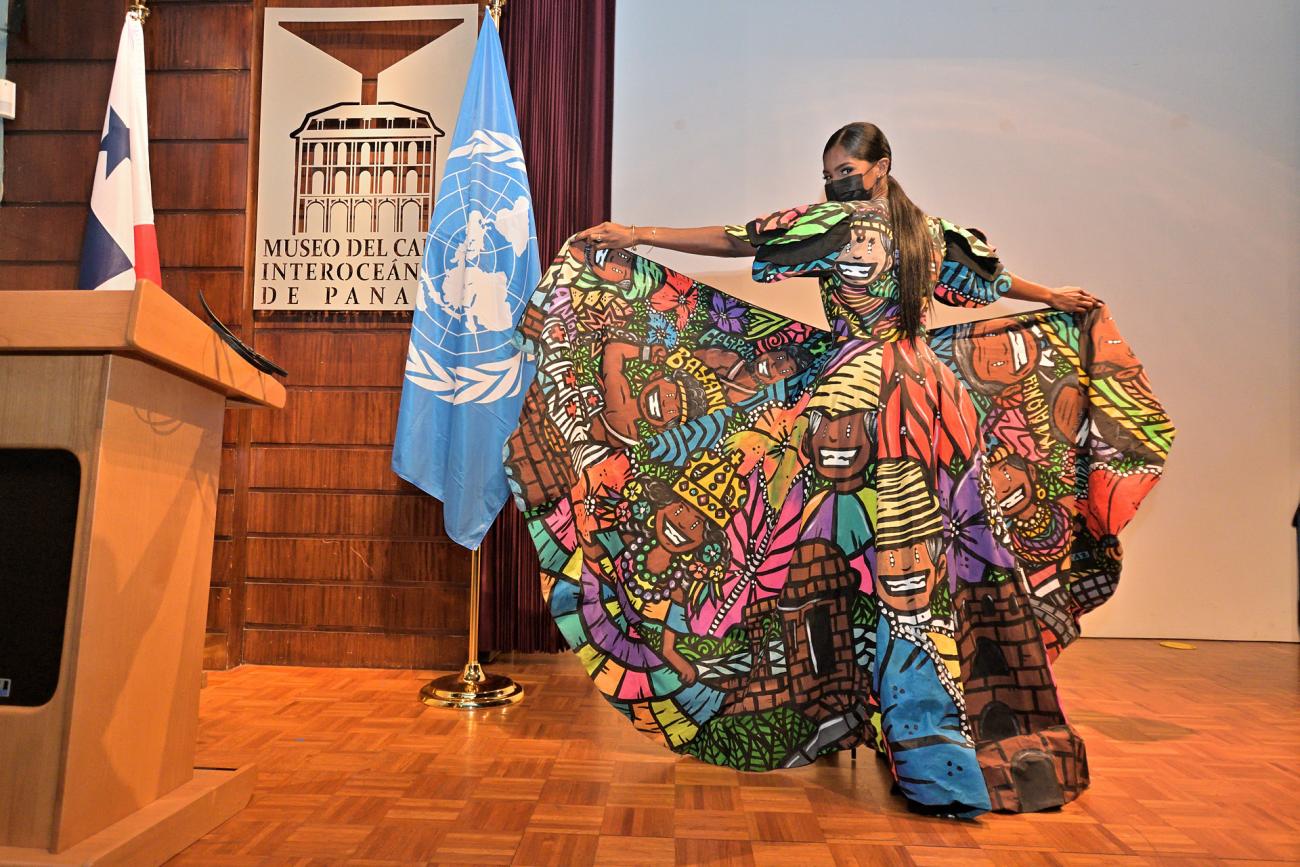
The Panama Canal Museum opened its doors to commemorate Human Rights Day and the 20th Anniversary of the Durban Declaration and Programme of Action, which embodies the world’s commitment to tackle racism, racial discrimination, xenophobia and related intolerance.
During the event, world-renowned young Afro-Panamanian entrepreneurs and activists, Erika Parker, Nicole Pinto, Stephanie Murillo, Jorge Montenegro and Jean Carlos Quijanos, shared the stage with a common goal: to raise their voices to put an end to the discrimination that affects thousands of young people of African descent in Panama, and overcome systemic racism and break stereotypes.
Talking from experience, these five young Afro-Panamanians agree that education is the key to end discrimination.
Struggles for visibility in the media
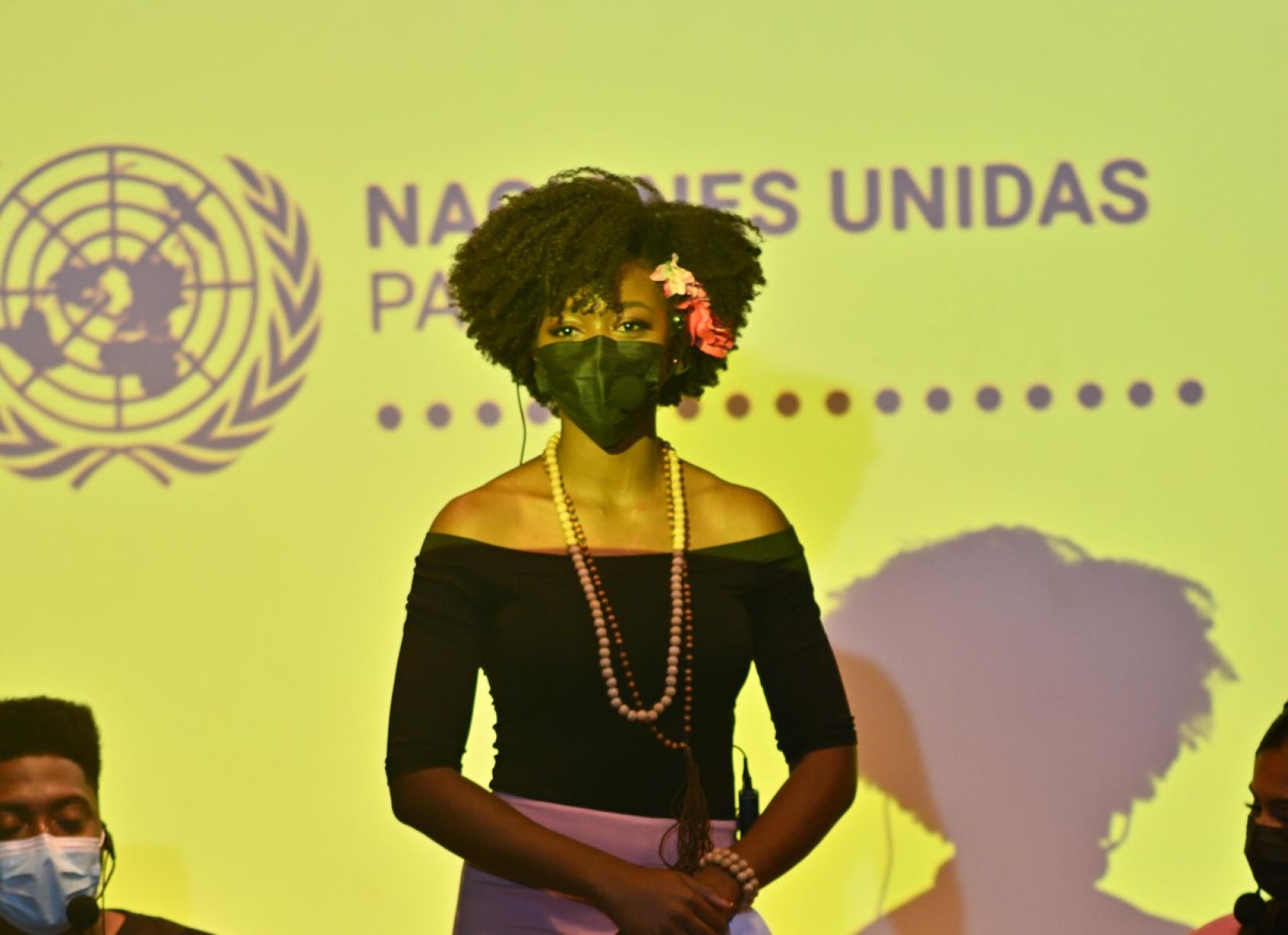
“From a very young age, I realized the difference between being a black girl and being from any other ethnic group in this country. That made me feel underrepresented…or not represented at all, which is uncomfortable”, says Erika Parker, model, TV hostess, entrepreneur and beauty pageant winner, when referring to the absence of Afro-descendants in television during her childhood.
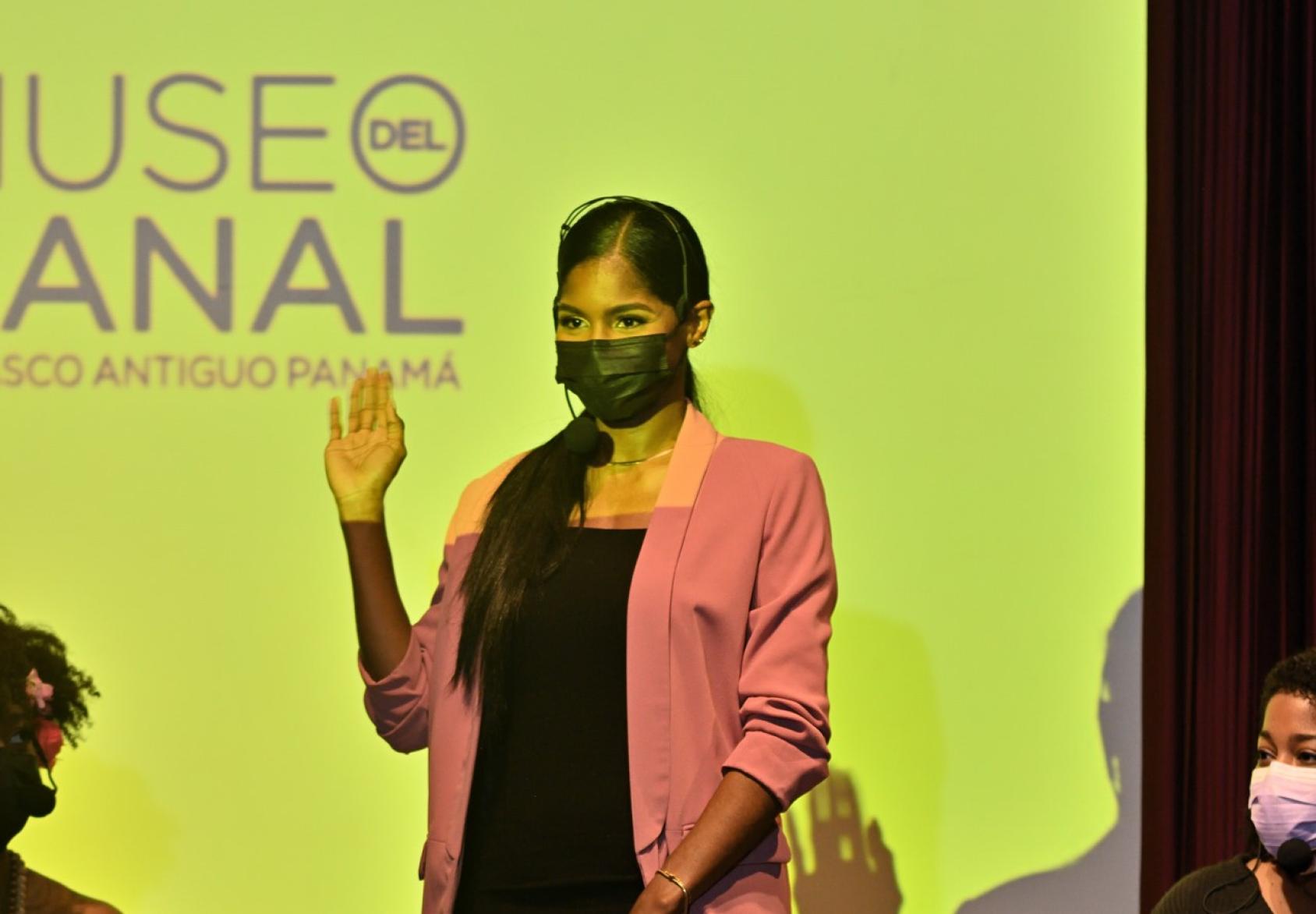
“As young Afro-Panamanians who have managed to have a presence on television, we have a great responsibility because people look up to us and see us as role models”, explains Nicole Pinto, model, businesswoman and beauty pageant contestant, who like Erika takes part in the TV industry.
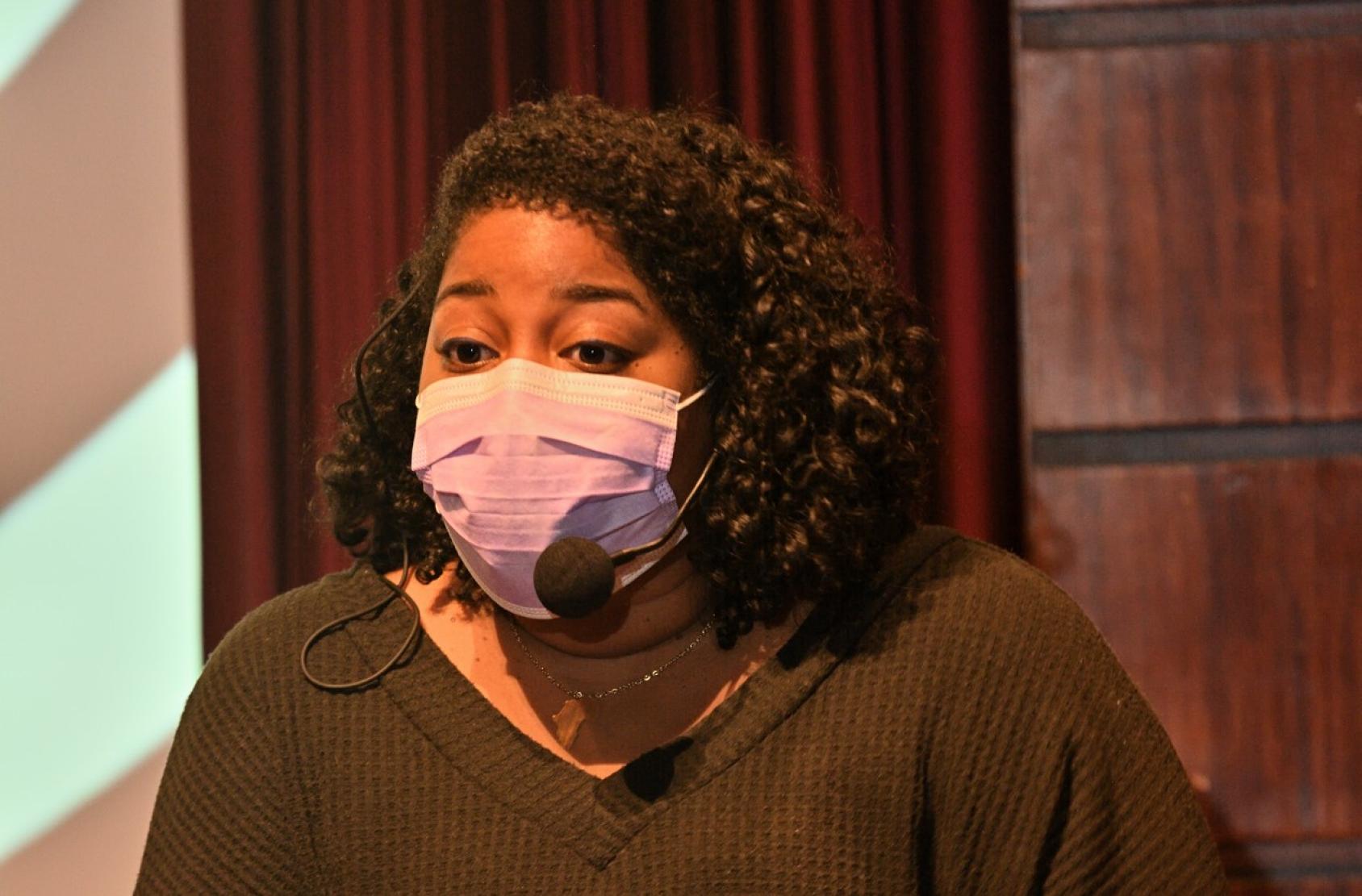
For Stephanie Murillo — a communications specialist, documentary producer and Emmy award winner — Afro-Panamanians have not only been underrepresented but also negatively portrayed, often as targets of mockery. Therefore, she started the project Afroraíces. This digital platform helps create a real and positive image of Afro-Panamanians by giving exposure to young African descendants from different professional paths and social spheres.
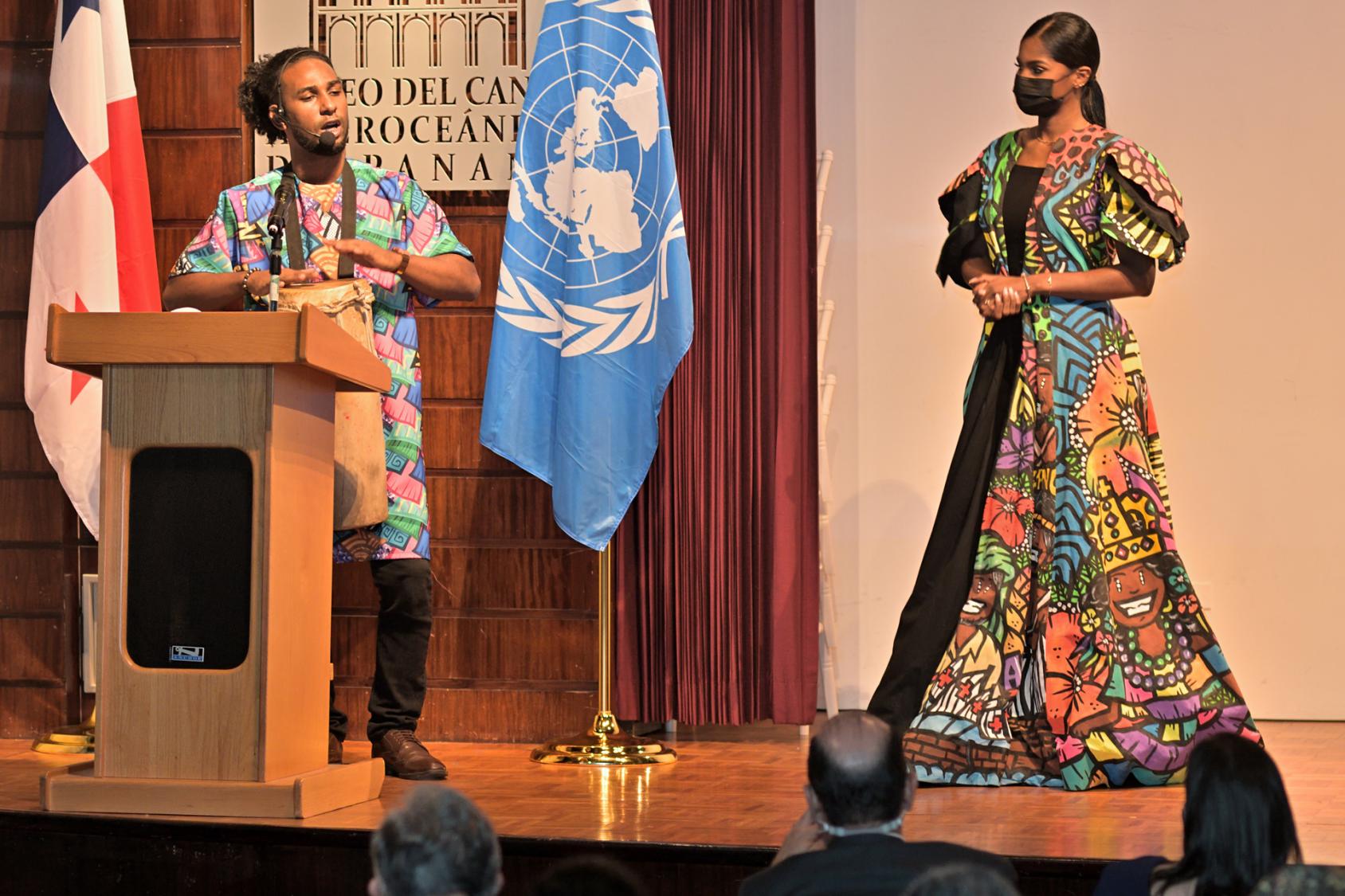
“Today, we are here because our ancestors put up the good fight. Thanks to those wise men and women who made history available to us, everything we have has a meaning, from the braids to the sound of the drums, or the color of our skin”, adds the musician and artisan, Jorge Montenegro.
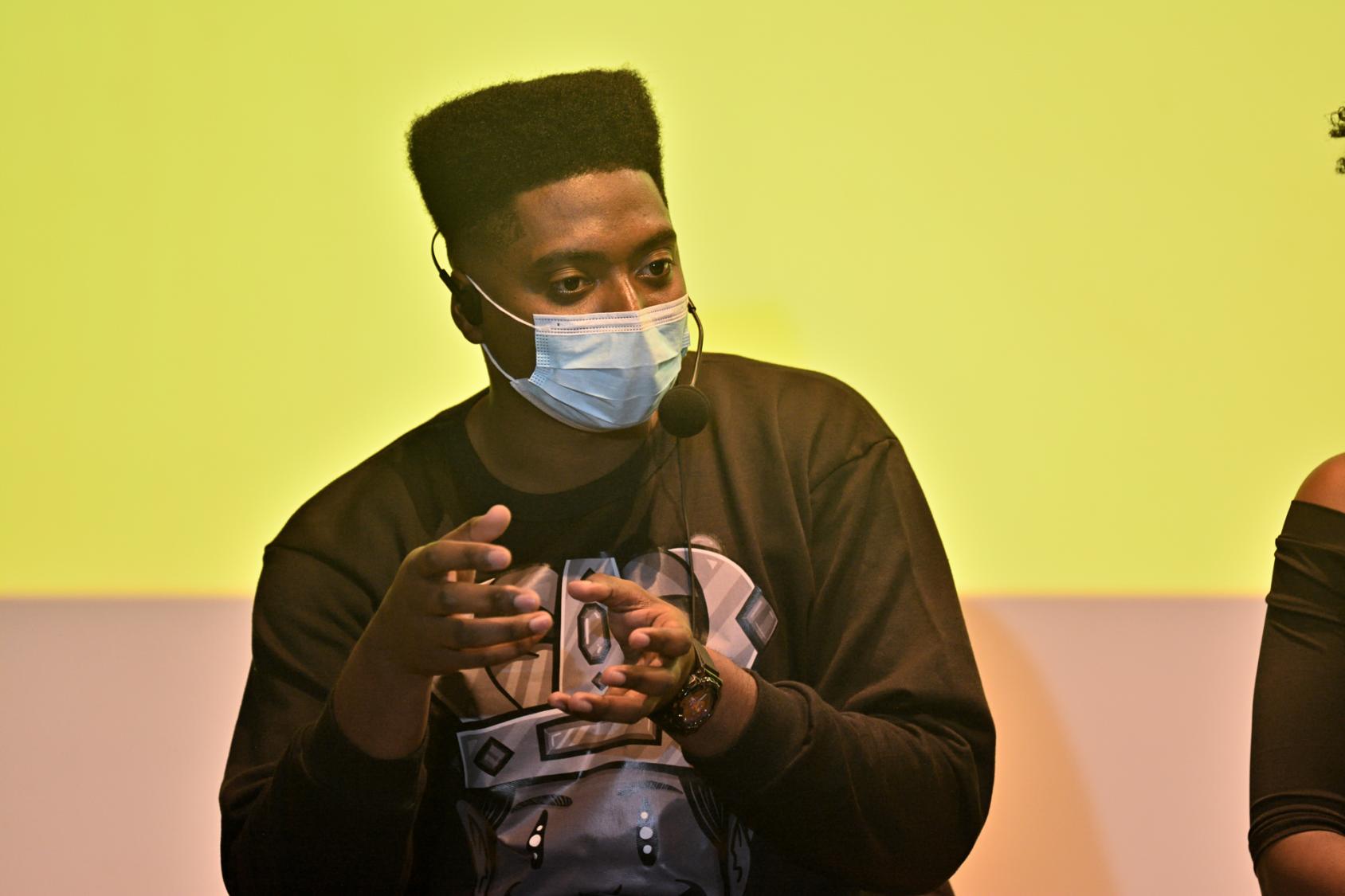
“There are no resources for Afro-descendants. It is hard to get a loan. In my case, I had to save from the age of 18 to be able to build my own brand, because there was no support. Even while going overseas to represent Panama, I had to do it with my own effort. We forget that we are all Panamanians regardless of the color of our skin”, says Jean Carlos Quijano, founder of the JeanDecort fashion brand.
Ensuring that no Afro-Panamanians are left behind
“The principles of equality and non-discrimination are at the heart of human rights. They are also at the core of the 2030 Agenda [for Sustainable Development] and the SDGs”, reminded Cristian Munduate, United Nations Resident Coordinator in Panama, during her introductory speech as one of the guest speakers during the event.
Through UNFPA, OHCHR, UNESCO, UNDP and other entities, the UN family in Panama is working together with the national authorities on including the history of Afro-descendants into the school curriculum, updating the Afro-Panamanian development plan as well as providing technical support to design the next population and housing census, among other aspects related to public policies.
The United Nations country team is also supporting Panama in meeting the requirements of the latest Universal Periodic Review (UPR), which includes over a dozen recommendations to guarantee the rights of Afro-descendants. As per OHCHR, "the UPR is a State-driven process, under the auspices of the [United Nations] Human Rights Council, which provides the opportunity for each State to declare what actions they have taken to improve the human rights situations in their countries and to fulfil their human rights obligations."
In Latin America and the Caribbean, Panamá and Costa Rica have been making great strides in boosting the promotion and protection of the human rights and fundamental freedoms of people of African descent.
Written by Janibeth Miranda Plúa, Communications and Information Officer, UNIC Panama. Story originally posted on UN Panama. Editorial support by Carolina Lorenzo, Development Coordination Office.
For more information about the United Nations' work in Panama, please visit: Panama.UN.org.
To learn more about the results of our work in this area and beyond, please visit the UNSDG Chair Report on DCO.













